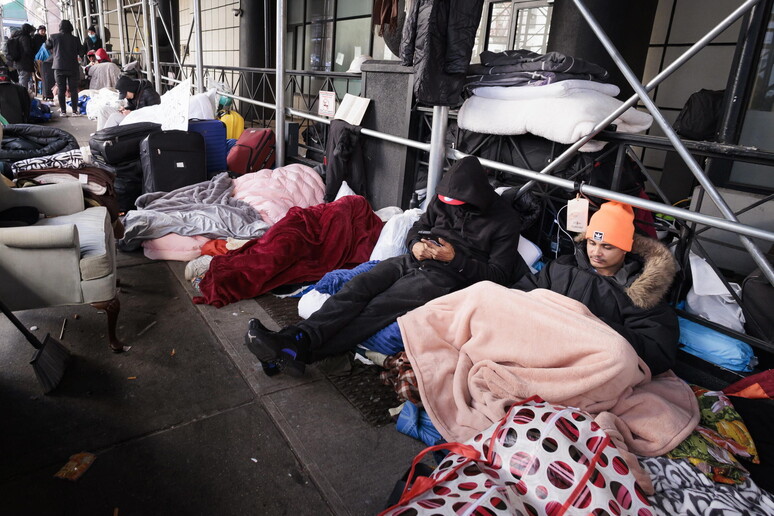Asylum seekers endured another night in the cold in Boerum Hill, Brooklyn, waiting for the city-issued IDNYC card, believing it’s a crucial step for legal employment and accessing city services. Despite the misconception that the IDNYC card is necessary for employment, video footage from early Thursday morning captured asylum seekers at Dean Street and Third Avenue in Boerum Hill and outside the federal building at 26 Federal Plaza in Lower Manhattan.
Although appointments for the IDNYC card fill up quickly, the Boerum Hill office on Third Avenue accommodates some walk-ins, prompting asylum seekers to queue up for available slots. Despite the city’s discouragement of waiting outside, especially in the cold, and clarification that the IDNYC card doesn’t facilitate employment, the line persists.
The IDNYC card neither provides work authorization nor affects immigration status, as emphasized by Department of Social Services spokesperson Neha Sharma. She stated, “IDNYC does not provide work authorization and does not impact immigration status. We continue to work to address any misconception around this.”
In 2023, the city issued 50% more IDNYC cards than in 2022. Meanwhile, in Lower Manhattan, asylum seekers wait daily for immigration hearings, a routine during the ongoing immigration crisis. Some face eviction notices from the shelter system, requiring reapplication and waiting in line for another 30 or 60 days for families.
City officials note a decrease in new arrivals due to the cold, allowing families to wait inside at the Roosevelt Hotel and single adults at St. Brigid’s on the Lower East Side, in compliance with the law to provide shelter.
By Thursday afternoon, the city organized donations of new warm clothes, toys, and strollers for asylum seekers. Deputy Mayor for Health & Human Services Anne Williams-Isom stressed the community’s generosity, stating, “These donations are not from us. These are from New Yorkers who raised their hands to help, to welcome, especially the children, to make sure they’re safe, comfortable, and feel warm and welcome this winter.”
While families adapt to temporary homes, they face 60-day notices, a necessary step for the city to cut 20% from its asylum seeker budget without impacting other services.
In recent developments, New York City implemented a curfew for 1,900 migrants across four centers in Queens, Manhattan, and Brooklyn, requiring them to be on-site between 11 p.m. and 6 a.m. The decision followed complaints from neighboring communities about panhandling by asylum seekers.












